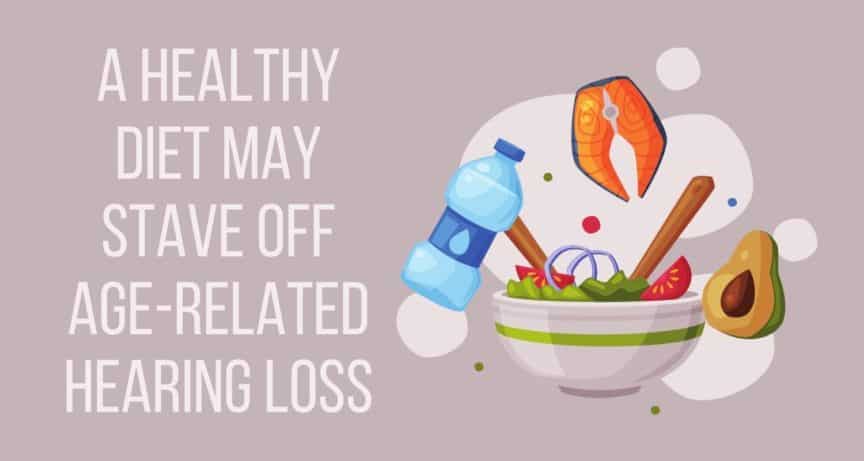Hearing loss affects many people in the United States. It is clearly one of the country’s invisible public health concerns. The majority of hearing loss is irreversible. However, some can be avoided. Noise-induced hearing loss, for example, can be reduced by employing healthy hearing strategies such as avoiding dangerously loud places, being aware of excessively loud listening conditions, and wearing ear protection when exposed to harmful decibels is unavoidable.
Another common source of hearing loss has always seemed inescapable; age-related hearing loss is considered a standard component of the aging process. However, a new study reveals that a healthy diet may just halt this “inevitable” trend.
Hearing loss: more common than you think
Hearing loss affects more than a third of all persons over 65. After a decade, half of all people over the age of 75 report having some degree of hearing loss. This can affect a person’s quality of life in various ways, including physical, mental, and emotional repercussions. Communication and connection are essential aspects of human existence. Our connections with ourselves and others suffer when daily contact with the world becomes challenging, even with loved ones.
Undiagnosed hearing loss is associated with a higher risk of depression. This is mainly due to a shift in their perception of the environment, which is now predominantly tailored toward a healthy hearing. However, when communication difficulties emerge, people are more likely to adopt isolating behaviors. These isolating behaviors can occur inadvertently, such as declining invitations regularly since the notion of challenging communication exhausts you. If left unchecked, these activities can cause severe mental and emotional exhaustion, despair, and low self-esteem.
Healthy diet, healthy ears?
We’ve always considered hearing loss as a natural part of growing older. However, new research suggests that eating a nutritious diet may have the extra benefit of lowering the risk of hearing loss. According to Dr. Sharon Curhan of the Channing Division of Network Medicine at Brigham and Women’s Hospital and Harvard Medical School, “a number of dietary factors… may reduce the risk of hearing loss.”
Her study monitored over 80,000 women for 26 years and discovered that those who ate the healthiest, highest-quality diets were 47 percent less likely to develop moderate or severe hearing loss later. This contrasts with the women who had unhealthy diets.
Diets to consider
The Alternate Mediterranean Diet (AMED), the Dietary Approaches to Stop Hypertension (DASH), and the Alternative Healthy Eating Index (AHEI) were cited as the diets to follow for the best chance of hearing benefits. Notably, all three diets include the same essential components: a high intake of vegetables, fruits, whole grains, nuts, and legumes, as well as a reduced intake of processed meats, sugar, and salt.
Beyond this link, it’s worth noting that the researchers found that when they looked at a smaller cohort of just over 33,000 women, all of whom had data on medical disorders that could cause hearing loss, the link between a healthy diet and a lower chance of hearing loss actually increased. In this case, the AMED and DASH diets both reduce risk by 47% and 46%, respectively. Those with a high AHEI score also saw a 29 percent reduction in their risk.
Additional advantages of a balanced diet
The advantages of a healthy diet go far beyond weight loss, which is presumably why we’re so often told to eat healthily. These findings could be due to the beneficial benefits of a healthy diet on blood flow. After all, if blood flow to the ear remains high, the ear’s specific mechanisms can function longer and more effectively. Furthermore, a balanced diet may improve the auditory nerve by improving general blood vessel health, reducing inflammation, and increasing nutrients.
If you already have some degree of hearing loss, make an appointment with us today for a hearing test. If you have hearing loss, we can advise you on the best following measures to improve your hearing health. Intervention and treatment are the most dependable approaches to improving quality of life and reducing hearing loss’s harmful impacts, aside from prevention.

